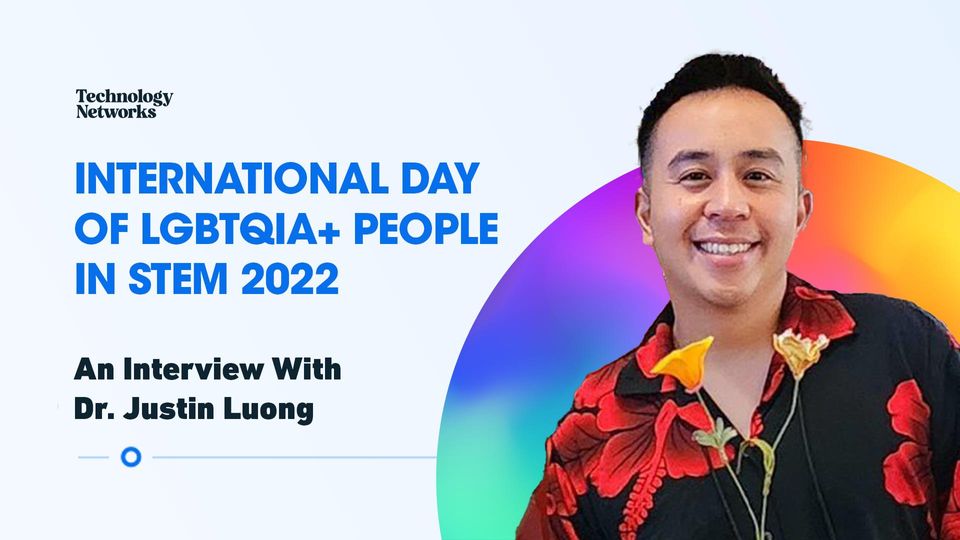International Day of LGBTQIA+ People in STEM 2022: An Interview With Dr. Justin Luong

Complete the form below to unlock access to ALL audio articles.
November 18 is International Day of LGBTQIA+ People in STEM 2022. Technology Networks had the pleasure of interviewing five individuals currently working in STEM who identify as LGBTQIA+ to find out about their experiences, opinions and ideas to inspire the next generation.
The article showcases the key insights gained from these trailblazers as a collective, but we want to share their individual conversations so that you can further understand their journeys, challenges and future perspectives as LGBTQIA+ individuals in science. In this interview, we spoke to Dr. Justin Luong, who identifies as a gay man and is a postdoctoral fellow at University of California, Davis, to learn more about his research into ecological restoration and experiences working in STEM.
Kate Robinson (KR): Your current research focuses on ecological restoration. Can you tell us more about this work and why you decided to focus your research in this area?
Justin Luong (JL): I chose to work in ecological restoration because I believe we all have a connection with the land and working to improve this connection brings me fulfillment. Before becoming a researcher, I was a restoration practitioner that restored grasslands and seasonal wetlands, but during my work, I became dismayed that restoration science often didn’t consider on the ground issues and perspectives. In my work, I focus on not just how to improve restoration given future global change, but also on how to better incorporate the working experiences of land managers who have a wealth of natural history knowledge that can improve restoration efforts but may be unpublished. I also hope to reach more people with my research and perspective and expand the community-based support for restoration, locally, regionally and globally. To do so I often work with artists to depict layman’s graphical illustration of my published research.
KR: What do you enjoy most about working in STEM?
JL: I enjoy being able to ask important questions about environmental management and the opportunity to train our next generation of professionals and scientists through a restoration ecology internship program I created and have hosted since 2018, supporting over 300 students. I also enjoy getting to explore and experience breathtakingly beautiful landscapes which I would have never seen without my research.
KR: Have you faced any obstacles in your career, and if so, how did you overcome them?
JL: Yes, being a queer person of color, I have often faced obstacles related to the intersectionality of my identities. In the past, my language skills have been questioned and in other cases I was harassed during field work. Although these are not easy obstacles to immediately surmount, I slowly overcame these issues by creating a supportive network consisting of folks with similar identities. I also now plan for field work ahead of time to chart out unexpected circumstances and how they could be approached before they occur.
KR: What are the main barriers for LGBTQIA+ people entering and progressing in STEM, and what could be done to support them?
JL: In my opinion, one of the biggest barriers for LGBTQIA+ people entering STEM is that there is often little to no representation, and it is hard to pursue a career path where you have never seen someone like yourself. Another barrier is explicit and implicit biases that LGBTQIA+ people have to face from their colleagues, students and supervisors. Representation can be addressed slowly by building visibility of our community and contributing to networks such as 500QueerScientists and connecting with like-identified individuals within their field on social media platforms. Implicit and explicit biases are hard to address because that will require institutional and structural change which will help reduce biases. In the short term, allies could work with LGBTQIA+ colleagues to ensure they feel supported in their department. Furthermore, when someone repeats falsehoods or biases that are harmful to LGBTQIA+ people, their colleagues should take initiative and action to ensure that those biases are not acted upon.
KR: If you could give one piece of advice to young LGBTQIA+ researchers beginning their career, what would it be?
JL: It will get better, although things seem hard now, as you get older and start to develop a true community of supporters you will be able to succeed and reach goals and overcome obstacles you never would have dreamed to be possible.
Dr. Justin Luong was speaking to Kate Robinson, Editorial Assistant for Technology Networks.



